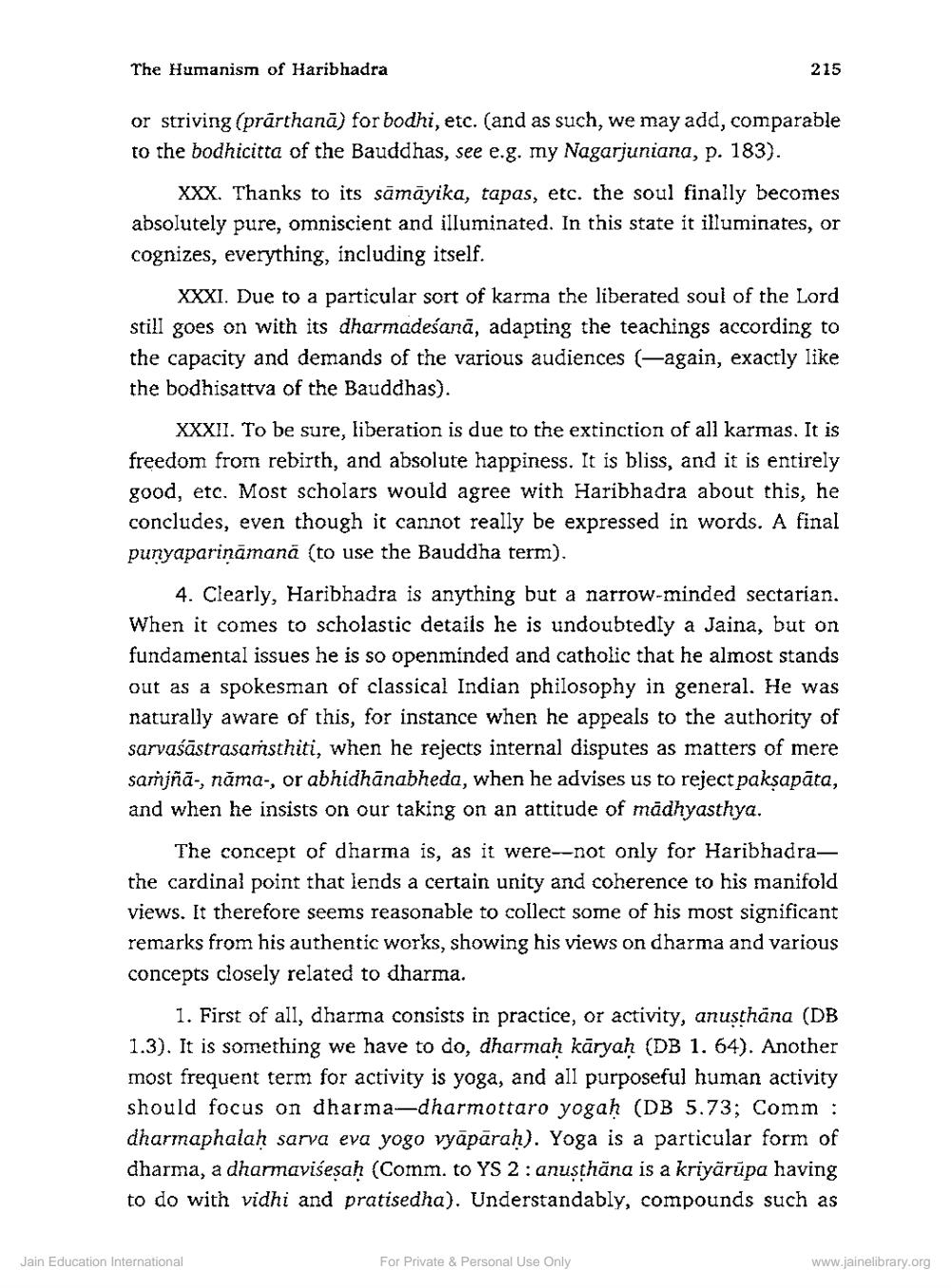________________
The Humanism of Haribhadra
or striving (prarthana) for bodhi, etc. (and as such, we may add, comparable to the bodhicitta of the Bauddhas, see e.g. my Nagarjuniana, p. 183).
215
XXX. Thanks to its sāmāyika, tapas, etc. the soul finally becomes absolutely pure, omniscient and illuminated. In this state it illuminates, or cognizes, everything, including itself.
XXXI. Due to a particular sort of karma the liberated soul of the Lord still goes on with its dharmadeśana, adapting the teachings according to the capacity and demands of the various audiences (-again, exactly like the bodhisattva of the Bauddhas).
XXXII. To be sure, liberation is due to the extinction of all karmas. It is freedom from rebirth, and absolute happiness. It is bliss, and it is entirely good, etc. Most scholars would agree with Haribhadra about this, he concludes, even though it cannot really be expressed in words. A final punyaparinämană (to use the Bauddha term).
4. Clearly, Haribhadra is anything but a narrow-minded sectarian. When it comes to scholastic details he is undoubtedly a Jaina, but on fundamental issues he is so openminded and catholic that he almost stands out as a spokesman of classical Indian philosophy in general. He was naturally aware of this, for instance when he appeals to the authority of sarvaśästrasamsthiti, when he rejects internal disputes as matters of mere saṁjñā-, nāma-, or abhidhanabheda, when he advises us to reject pakṣapāta, and when he insists on our taking on an attitude of mädhyasthya.
The concept of dharma is, as it were--not only for Haribhadrathe cardinal point that lends a certain unity and coherence to his manifold views. It therefore seems reasonable to collect some of his most significant remarks from his authentic works, showing his views on dharma and various concepts closely related to dharma.
1. First of all, dharma consists in practice, or activity, anusthåna (DB 1.3). It is something we have to do, dharmaḥ kāryaḥ (DB 1. 64). Another most frequent term for activity is yoga, and all purposeful human activity should focus on dharma-dharmottaro yogaḥ (DB 5.73; Comm: dharmaphalaḥ sarva eva yogo vyāpāraḥ). Yoga is a particular form of dharma, a dharmaviseṣaḥ (Comm. to YS 2: anusthäna is a kriyārūpa having to do with vidhi and pratisedha). Understandably, compounds such as
Jain Education International
For Private & Personal Use Only
www.jainelibrary.org




